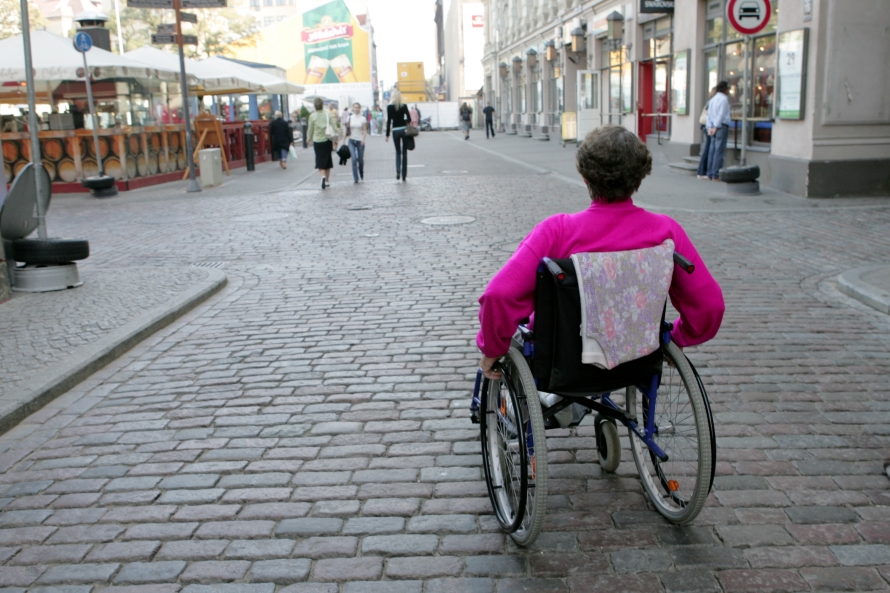Bolis has spent 23 years in a wheelchair and says in comparison with the first years of post-Soviet independence not much has changed. The laws are on the books but “we have this unique situation where the law can just be rudely ignored,” he pointed out.
He puts the blame largely on local government construction authorities rubber-stamping and putting into service buildings that haven’t made their facilities accessible to all, despite having formally followed through enforcement of the development process.
Bolis also indicated it’s not just a matter of money. As an example, he cites the Baltic coastal village of Nica, where the local government has put “ten times the effort” over the city of Riga, and that it’s just “a question of attitude.”
In cases crying out for attention, the advocates' group turns to the courts. A claim has been filed for instance against the design for a new wing at the Academy of Art. It was supposed to have been started with accessibility in mind, however failed to do so. The Academy could be liable for part of the almost €1.5m euro project, of which €1.2m came from EU regional development funds.
“It’s very important to us how this decision goes,” Bolis said.
In this case, the architect and independent civil engineering experts made mistakes, but Riga’s municipal Building Construction Directorate approved its putting into service in 2012.
As Aperions leader Ivars Balodis told LETA in February, “the floors are sloped at 15% angle, whereas the law requires an 8% slope, that’s in excess almost twice the maximum for people to get in there. Unfortunately we’ve encountered their reluctance to do anything about it, which really complicates everything,” he described the challenge facing his organization. The Art Academy on its part claims that stair climbers are provided to all persons facing accessibility challenges.
He explained further that his NGO is all for “reasonable accomodations.”
“We’re not asking them to tear down historic facades on cultural treasures, but such a status for a building shouldn’t mean it must remain inaccessible to people with disabilities,” Bolis argued.
His harshest criticism was directed at hospitals which still haven’t set up properly accessible facilities, again despite laws in place that should have gone into effect, but were postponed from doing so owing to the poor state of readiness throughout the land’s primary health care sites. The laws obliging hospitals to provide full accessibility are supposed to go into effect in July.
“Europe stands behind us, so the Latvian government can philosophize all it wants, but it cannot ignore these EU norms, in that case the Health Ministry comes into non-compliance with EU acts,” the Apeirons spokesman said.
























